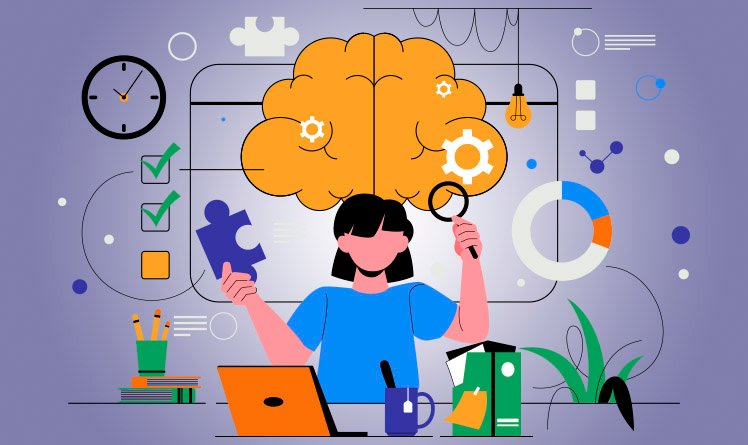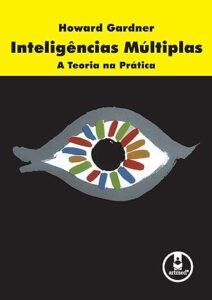Gardner's Multiple Intelligences: What They Are and How to Work with Them

|
Getting your Trinity Audio player ready...
|
The concept of multiple intelligences has revolutionized the way we understand human intelligence. Proposed by Howard Gardner, this theory challenges the traditional view that intelligence is a single ability, measured predominantly by IQ tests. Instead, Gardner suggests that we all possess different types of intelligence, which can be developed and refined throughout our lives.
But what exactly are these multiple intelligences and how can we work on them in our daily lives? In this article, we will explore more about what Gardner's multiple intelligences are and how to work on improving them.
What are multiple intelligences?
Multiple Intelligences is a theory developed by psychologist Howard Gardner, which proposes that intelligence is not limited to a single ability, but rather a set of different capabilities and aptitudes.
Thus, contrary to the traditional view of intelligence, which defines it as a general and unidimensional capacity, Gardner's theory recognizes that people have different forms of intelligence, each with its own characteristics and potential.
“"Multiple intelligences are different ways of expressing human potential: each person possesses a set of skills that can be developed according to their experiences, environment, and practice."”
Origin and development of the theory
The theory of multiple intelligences was initially proposed by Gardner in his book. Frames of Mind: The Theory of Multiple Intelligences, published in 1983. In this work, Gardner challenged, above all, the dominant notion of intelligence, which defined it as a general capacity measurable through IQ tests.
Throughout his career, Gardner continued to develop and refine his theory, identifying eight distinct types of intelligence: linguistic, logical-mathematical, spatial, bodily-kinesthetic, musical, interpersonal, intrapersonal, and naturalist. Later, he also suggested the existence of additional intelligences, such as spiritual and existential intelligence, further expanding the understanding of human potential.
Gardner's 8 Multiple Intelligences
Each type of intelligence represents a unique way of perceiving, processing, and interacting with the world. Let's explore them:
Linguistic intelligence
First, we have linguistic intelligence, which refers to the ability to use and manipulate language effectively, both in written and oral form. Thus, people with strong linguistic intelligence tend to excel in activities such as reading, writing, public speaking, memorizing information, and learning languages.
Logical mathematical intelligence
This type of intelligence is related to the ability to reason logically, solve problems and manipulate abstract concepts. Thus, individuals with this type of intelligence excel in activities that involve calculations, pattern analysis, scientific thinking and theory development.
Spatial intelligence
Spatial intelligence involves the ability to perceive the visual spatial world accurately and to make transformations and modifications to these perceptions. Therefore, people with this more developed intelligence excel in activities such as drawing, painting, sculpting, navigation and solving puzzles.
Bodily-kinesthetic intelligence
Bodily-kinesthetic intelligence refers to the ability to use the body skillfully, both to express emotions and to solve problems. Thus, individuals with this intelligence excel in physical activities, such as sports, dance, acting and crafts.
Musical intelligence
This type of intelligence is present in people who excel in activities such as composition, interpretation, musical appreciation and creation of rhythms. After all, it involves the ability to perceive, discriminate, transform and express musical forms.
Interpersonal intelligence
When we talk about interpersonal intelligence, we are referring to the ability to understand and interact effectively with other people, recognizing and responding appropriately to their emotional states, motivations and intentions. In this group, we have individuals who excel in activities such as leadership, teaching, counseling and teamwork.
Intrapersonal intelligence
Intrapersonal intelligence involves the ability to understand oneself, recognizing one's own feelings, emotions, motivations and personality. Thus, people with this intelligence excel in activities involving self-knowledge, life planning, decision-making and personal development.
Naturalistic intelligence
Finally, naturalistic intelligence refers to the ability to recognize and classify species in nature, as well as to establish connections and patterns between them. Therefore, this type of intelligence is related to activities such as nature observation, gardening, animal care and environmental preservation.
“"There is no single most important type of intelligence. Each type of intelligence has value and can be essential depending on the context and individual goals."”
How to identify and work with multiple intelligences
School environment
In the school environment, it is crucial that educators recognize and value the different forms of intelligence among students. This can be done by diversifying teaching methodologies, offering activities that encompass all types of intelligence.
For example, incorporating music and art into classes, in addition to physical activities and hands-on experiences, can help develop different intelligences.
Professional environment
In the workplace, understanding multiple intelligences can improve productivity and employee satisfaction. This way, leaders and managers can create balanced teams, taking advantage of each member’s different skills. Additionally, providing personalized training and development can help employees enhance their skills.
Personal development
On a personal level, recognizing your own intelligences can be extremely beneficial. It allows you to identify your strengths and areas of interest, which can guide your career choices and hobbies. Therefore, investing time in activities that develop your dominant intelligences can lead to a more balanced and fulfilling life.
“"To develop multiple intelligences, start by observing your natural talents and create experiences that stimulate different areas of the brain—the secret is to exercise mental diversity."”
Integration with NLP, Mindfulness and Positive Psychology
Multiple intelligences can be enhanced through practices of mental reprogramming and mindfulness. For example, NLP (Neuro-Linguistic Programming) helps to recognize the thought patterns linked to each type of intelligence. mindfulness It strengthens observation without judgment and broadens focus. Positive psychology, on the other hand, directs the use of intelligences towards personal flourishing, encouraging self-confidence and a sense of purpose.
Neuroscience shows that exercising different intelligences stimulates neuroplasticity—the brain's ability to create new neural connections. This means that developing one intelligence does not exclude others; on the contrary, it strengthens the entire cognitive and emotional system.
Benefits of working with Multiple Intelligences
Working with multiple intelligences brings a number of benefits. First, it promotes a more holistic view human development, recognizing that each person is unique and has distinct talents. Second, it encourages inclusion and diversity, valuing different ways of thinking and solving problems. Third, it contributes to more effective learning, since individuals can learn in ways that are more natural to them. Other important points:
Self-knowledge and self-esteem
Understanding your own intelligence can lead to greater self-awareness and a better understanding of your strengths and weaknesses. This, in turn, can contribute to the development of self-esteem and self-confidence.
Motivation and personal fulfillment
Most importantly, by identifying and valuing their unique abilities, people can feel more motivated to pursue their goals and achieve meaningful personal accomplishments. This can lead to greater satisfaction and well-being.
Relationships and empathy
Recognizing which intelligences are present can also improve understanding and empathy in relation to others. Thus, by understanding that each person has a unique set of skills, individuals can become more tolerant, respectful and collaborative in their relationships.
How to enhance each of the multiple intelligences
Linguistics
- Read books of different genres
- Write diaries, poems or stories
- Participate in debates and discussions
Logical mathematics
- Solve puzzles and riddles
- Participate in strategy games
- Conduct scientific experiments
Spatial
- Draw and paint
- Build models or mockups
- Participate in activities such as photography or graphic design
Musical
- Learn to play an instrument
- Compose music or songs
- Participate in choirs or bands
Bodily-kinesthetic
- Play sports or dance
- Do crafts or manual work
- Participate in theater or other performing arts
Interpersonal
- Participate in discussion groups or clubs
- Work on team projects
- Practice active listening and empathetic communication
Intrapersonal
- Meditate and practice mindfulness
- Keep a reflective journal
- Set personal goals and track progress
Naturalist
- Take walks in nature and observe the environment
- Taking care of plants or animals
- Participate in gardening or environmental conservation projects
How to develop your potential with multiple intelligences.
The first step is the self-knowledge. Therefore, understanding which intelligences you use most naturally helps to direct your efforts. Then, the second step is intentional training: daily mindfulness practices and mental reprogramming accelerate the process.
The NLP technique called modeling It can be used to observe people who excel in a particular intelligence and to reproduce their behaviors and mental patterns. However, mindfulness It helps maintain focus on this process without self-criticism, while positive psychology reinforces the pleasure and confidence of learning something new.
In other words, when you become aware of your way of thinking and find pleasure in learning, the brain creates new pathways. That's the true reprogramming of the mindset.
In short…
In conclusion, Howard Gardner's theory of multiple intelligences offers us a rich and diverse perspective on human intelligence. Thus, recognizing and cultivating our multiple intelligences leads us not only to achieve more balanced personal development, but also to contribute to a more inclusive and productive educational and professional environment.
Whether you are an educator, a professional, or someone seeking personal growth, considering developing your multiple intelligences can be the path to a more complete and fulfilled future.
FAQ – Questions and answers about Gardner's Multiple Intelligences
1. What differentiates multiple intelligences from traditional IQ?
While IQ measures only logical and linguistic reasoning, multiple intelligences consider a variety of talents—such as artistic, emotional, and physical abilities.
2. Can multiple intelligences be trained?
Yes! Neuroplasticity allows you to develop any type of intelligence through intentional practice and mindfulness.
3. How the mindfulness Does it help in the development of multiple intelligences?
It broadens awareness and reduces distractions, making it easier to learn and focus on the skills you want to improve.
4. Is the theory of multiple intelligences scientifically based?
Yes. Although some approaches are more commonly applied in education, modern neuroscience confirms that different brain areas are activated for different types of intelligence.
5. What is the first step in applying this theory to life?
Observe your preferences, reflect on your natural abilities, and begin practicing activities that stimulate new intelligences daily.
Recommended reading:
Multiple Intelligences: Theory in Practice
Images: Freepik

Marcel Castilho is an expert in neuromarketing, neuroscience, mindfulness and positive psychology. In addition to being an advertiser, he also has a Master's degree in NLP – Neurolinguistic Programming. As the owner and founder of the communications agency VeroCom and also of the digital agency Vero Contents, he has been studying human behavior for over 30 years.


